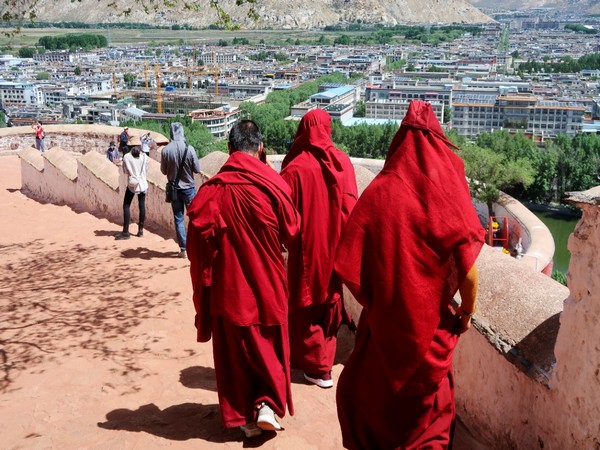China, under the garb of propagating “ethnic unity”, is seeking to integrate the Tibet Autonomous Region (TAR) into the development narrative and carry out forced labour in the region, media reports said.
Beijing, on Thursday, held a conference on “pairing-up support for the Tibet Autonomous Region” in order to foster a strong sense of community for the Chinese nation and hide the grave human rights abuses underway in the region.
With regard to the forced labour in Tibet, researcher Adrian Zenz suggested transfers to labour placements outside the Tibet Autonomous Region (TAR). This forced labour outside TAR includes employment at the Chinese state-owned food processing holding company (COFCO) Group and China’s largest state-owned food-processing company.
A similar scheme which was implemented in Xinjiang had received criticism from several quarters. In March 2010, the Chinese government initiated a “pairing assistance” program to “support Xinjiang in building new infrastructure and promoting local industry”.
According to experts, efforts to put ethnic minorities to work through programs such as poverty alleviation combine in a concerning way with “pairing” programs in which the mainland Chinese provinces are partnered with specific regions of the XUAR. Implementation of a similar pairing assistance scheme in Tibet is a cause of worry.
This emphasis on pairing assistance comes in the backdrop of the recent UN Special Rapporteur on Contemporary Forms of Slavery Tomoya Obokata’s report released this week pointed towards forced labour that has taken place in the Xinjiang region of China and similar instances of forced labour being carried out Tibet too.
According to the Chinese media reports cited by a policy research institute, Tibet Rights Collective, the program is centred around enhancing the pairing up program to an extent that its rallies national support for China. However, Beijing will do all this in the garb of Tibet’s development.
This is not the first time that China is holding such a conference as prior to this also Beijing held meetings and conferences where it tried to cater for its agenda in Tibet. The Thursday meeting was the third of its kind.
The meeting was attended by Wang Yang, a member of the Standing Committee of the Political Bureau of the Communist Party of China (CPC) Central Committee and head of a central coordinating group for Tibet work, the Chinese media reports said.
China will hold the 20th National Congress soon and prior to this Chinese President Xi Jinping is trying everything in his capacity to secure the third term. The 18th CPC National Congress was held in 2012 and since that time an “unprecedented amount of fund and personnel have been earmarked for the pairing-up support work.”
The funds have covered a wide range of areas.
Chinese foreign minister Wang Yi also called for stepping up education to “fostering a strong sense of community for the Chinese nation” and the education of China’s national conditions.

